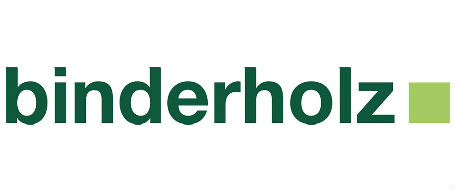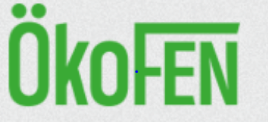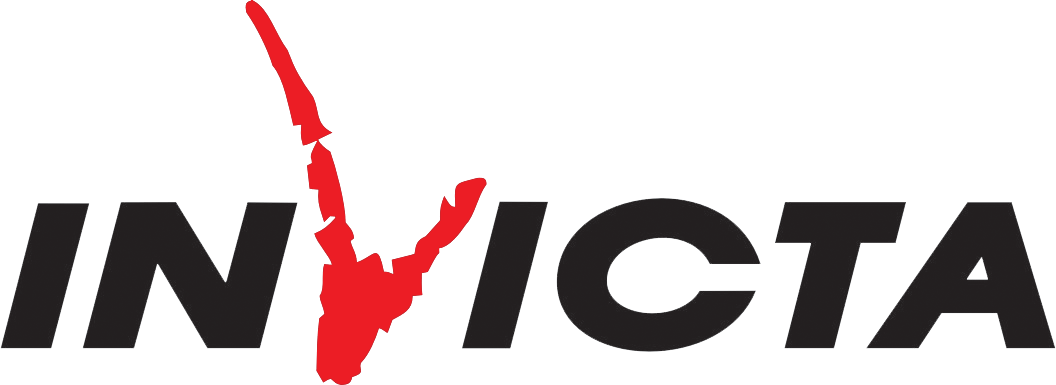Sintesi
The global market for wood pellets, which was estimated at $8.88 billion, is projected to grow at an annual rate of 9.4% to reach $18.22 billion by 2027, with Europe accounting for 85.9% of the market share. Demand is driven by environmental concerns, increasing fossil fuel prices, and government incentives for renewables. Italy's consumption of pellets is largely met by imports, chiefly from Austria, with the Italian market size valued at €1.43 billion. Pellet consumption is anticipated to rise due to government incentives, such as the Conto Termico and the 110% Superbonus, despite challenges posed by the COVID-19 pandemic. In North America, demand is bolstered by a new investment tax credit for wood and pellet appliances. The Asia-Pacific region is expected to see the fastest growth due to supportive government measures, with a CAGR of 14.4% from 2020 to 2027. Central and South America have significant production potential due to their abundant forests. Italian demand is majorly driven by the residential sector, especially for heating, influenced by government incentives and energy efficiency measures. The industry was affected by the health crisis, but incentives such as the ecobonus are seen as potential drivers for recovery.
Trends in the Wood Heating Market in Italy
Italy's wood heating market has observed significant trends over the past few years, with the demand being primarily driven by individual consumers and evolving government incentives promoting the usage of renewable energy sources for heating. Here's an overview of the main trends in this market:
Increased Use of Wood Pellets in Residential Heating: Wood pellets, particularly in the residential heating sector, have seen a steady rise in consumption. Italy stands as one of the leading European countries in terms of the number of domestic pellet appliances installed, with around 2.2 million units in action as of 2020.
High Dependence on Imports: The domestic production of wood pellets in Italy is far outstripped by the consumption levels, leading to the country being one of the largest importers of pellets in Europe. The annual pellet consumption is estimated at around 3.4 million tons, while the imports have surged by more than 200 percent.
Consumer Behavior and External Influences: The behavior of end consumers evidently influences the market, with factors such as mild winters and the price of fossil fuels playing a role in the fluctuations of wood biomass stove production turnover. This indicates a highly responsive market that adjusts to various external parameters.
Regional Preferences: The consumption of pellets is not evenly distributed across Italy. Regions like Lombardy and Veneto have the highest consumption rates due to their large populations.
Government Incentives and Regulations: The Italian market has benefited from supportive policies such as tax incentives and grants like the Conto Termico, encouraging the adoption of wood pellet heating systems. Moreover, the implementation of sustainability requirements for solid biomass in the EU has necessitated adaptations by market players.
The Impact of the Health Crisis: The COVID-19 pandemic has impacted the biomass heating plant and equipment industry, leading to operational cessations for many manufacturers.
The Rising Preference for Sustainable Solutions: Wood heating presents an economically viable and environmentally friendly solution for both individual and business applications. This has been particularly advantageous for operations with high energy costs such as greenhouses and hotel facilities in high altitude areas.
Market Concentration: The production and marketing of wood systems are highly concentrated in the northern parts of Italy, with Lombardy, Trentino-Alto Adige, and Veneto housing a significant share of the industry players.
Variable Pricing: The prices of wood-burning appliances exhibit a wide range due to the diverse.
Key Players in the Wood Heating Market: A Mosaic of Regional Strengths and Sustainable Innovation
The wood heating market is comprised of a diverse set of players, from manufacturers of wood pellets to producers of heating appliances. Their geographical distribution, product offerings, and adherence to sustainability practices paint a vivid picture of the industry's landscape.
- EN Plus Certified Companies: Pioneers of Pellet Quality
At the heart of the wood pellet segment are companies holding EN Plus certification, which signals adherence to rigorous quality standards. Lombardy emerges as a powerhouse with 19 certified companies leading in production. Close on its heels are Trentino-Alto Adige and Veneto, regions known for their rich forestry resources and pioneering pellet manufacturing technologies. Together, these regions contribute to nearly half of Italy's EN Plus certified entities, shaping an industry that is both regionally concentrated and steeped in competitive craftsmanship.
- Appliance Manufacturers: The Heat of the Home
When it comes to wood heating appliances such as stoves, boilers, and fireplaces, there's a spectrum of established and emerging manufacturers. These entities not only serve as the backbone of the market but also directly impact consumer choices through their innovative product designs, energy efficiency, and cost-effectiveness. Their presence in the market ranges from direct sales in flagship stores to strategic partnerships with wholesalers and installer networks.
- Wholesalers and Distributors: The Middlemen of Warmth
Bridging the gap between manufacturers and the end consumer are the wholesalers and distributors, who play a pivotal role in the wood heating supply chain. They purchase bulk products from manufacturers and provide essential market access, often dealing with the logistically complex task of transporting biofuels like pellets to retailers and consumers across Italy and beyond.
- Installers and Retailers: Bringing Heat to Homes
Installers and exclusive networks of installers serve as the frontline interface with consumers, offering not just the appliances but also the expertise required for installation and maintenance. They are instrumental in maintaining the robust growth of the wood heating market by facilitating the transition of households and businesses to more sustainable and renewable sources of heat. In recent years, the presence of large DIY stores has also been noted, widening the accessibility of wood heating solutions to a more diverse customer base and potentially disrupting traditional sales channels with the convenience they afford.
- Sustainability and Regulation: The Market's Environmental Conscience
As the industry moves forward, both European and Italian regulations play a significant role in driving sustainability practices among market players.
per comprendere questo mercato
Dettaglio del contenuto
 Informazioni
Informazioni
- Pagine : 30 pags
- Formato : Versione PDF e digitale
- Ultimo aggiornamento : 15/11/2021
 Riepilogo ed estratti
Riepilogo ed estratti
1 Market Overview
1.1 Definition and scope of the study
The wood heating market identifies the energy recovery of forest (branches, small trees, etc.) and industrial (sawdust, chips, etc.) by-products.
Wood pellets are consumed in two different markets:
- In the power generation sector: pellets are a co-fuel in coal-fired power plants and a sole fuel in coal-fired power plants converted to reduce greenhouse gas emissions from power generation.
- In the residential heating sector, they are widely used as a practical solid biofuel in stoves and automatic boilers.
Over the past decade, global production of wood pellets has increased steadily, driven by strong growth in demand. During this period, global production of wood pellets has more than quadrupled.
In Germany and Austria, where pellet boilers dominate the market, wood is delivered to the end user mainly in bulk, while in Italy and France, where pellet stoves account for a considerable share of consumption, wood is purchased by the consumer in small bags (∼15 kg).
In Italy, wood pellets are mainly used for heating in the residential sector (boilers and stoves). Policies that favor the renewable heating sector in Italy include
- Tax incentives: wood pellet heating systems can benefit from a scheme to support energy savings in the building sector through tax deductions. The maximum deduction is 30,000 euros;
- Grants (Conto Termico): to promote energy efficiency and the use of renewable energy for heating in the private and public sectors;
- White Certificates (or Energy Efficiency Certificates - EEC): tradable securities certifying energy savings in energy end uses.
Italian consumption of wood pellets has increased in recent years, remaining well above domestic production levels. Pellet consumption is therefore largely covered by imports. The largest concentration of producers is in the northeast of the peninsula. Lombardy is the main production location, with 45 percent of the national supply, followed by Veneto (18 percent), Friuli-Venezia Giulia (16 percent) and Trentino-Alto Adige (8 percent).
In recent years, sustainability requirements for solid biomass have been established in several EU countries. Therefore, market players need to adapt to these requirements in order to continue their activities.
 Grafica
Grafica
- Evoluzione delle dimensioni del mercato del pellet di legno
- Evoluzione della produzione di stufe a biomassa di legno
- Distribuzione del consumo di energia rinnovabile nel settore termico
- Sviluppo delle esportazioni di pellet di legno
- Sviluppo delle importazioni di pellet di legno
Tutti i nostri studi sono disponibili online e in PDF
Ti invitiamo a consultare un esempio del nostro lavoro di studio su altri mercato!
Aziende citate in questo studio
Questo studio contiene un panorama completo di società di mercato con le ultime cifre e le notizie di ogni azienda :
 Perché Scegliere Questo Studio :
Perché Scegliere Questo Studio :
Accedi a più di 35 ore di lavoro
I nostri studi sono il risultato di oltre 35 ore di ricerca e analisi. L'uso dei nostri studi ti consente di dedicare più tempo e aggiungere valore ai tuoi progetti.
Approfitta di 6 anni di esperienza e oltre 1.500 studi settoriali già prodotti
La nostra competenza ci consente di produrre studi completi in tutti i settori, inclusi i mercati di nicchia o emergenti.
Il nostro know-how e la nostra metodologia ci consentono di produrre studi con un valore unico di denaro
Accedi a diverse migliaia di articoli e dati a pagamento
BusinessCoot ha accesso all'intera stampa economica a pagamento e ai database esclusivi per svolgere studi di mercato (+ 30.000 articoli privati e fonti).
Al fine di arricchire i nostri studi, i nostri analisti utilizzano anche indicatori Web (semrush, tendenze, ecc.) Per identificare le tendenze in un mercato e strategie aziendali. (Consulta le nostre fonti a pagamento)
Supporto garantito dopo l'acquisto
Una squadra dedicata al servizio post-vendita, per garantirti un alto livello di soddisfazione. +39 380 247 7810
Un formato digitale progettato per i nostri utenti
Accedi a un PDF ma anche una versione digitale per i nostri clienti. Questa versione consente di accedere a fonti, dati in formato Excel e grafica. Il contenuto dello studio può quindi essere facilmente recuperato e adattato per i tuoi supporti.
 Le nostre offerte :
Le nostre offerte :
the wood heating market | Italy
- Quali sono i dati relativi alle dimensioni e alla crescita del mercato?
- Cosa sta influenzando l'andamento e l'evoluzione del mercato?
- Qual'è il posizionamento degli attori di mercato?
- Segmentazione e profilo delle aziende operanti nel mercato
- Dati e numeri da una molteplicità di fonti
Pacchetto di 5 studi (-15%) IT Italy
- 5 rapporti a 75,6 € IVA esclusa per studio da scegliere dal nostro catalogo italiano per 12 mesi
- Risparmiare il 15% sugli studi aggiuntivi acquistati
- Scegliere il rimborso del credito non utilizzato al termine dei 12 mesi (durata del pacchetto).
Consulta i termini e le condizioni del pack e del rimborso del credito non utilizzato.






















